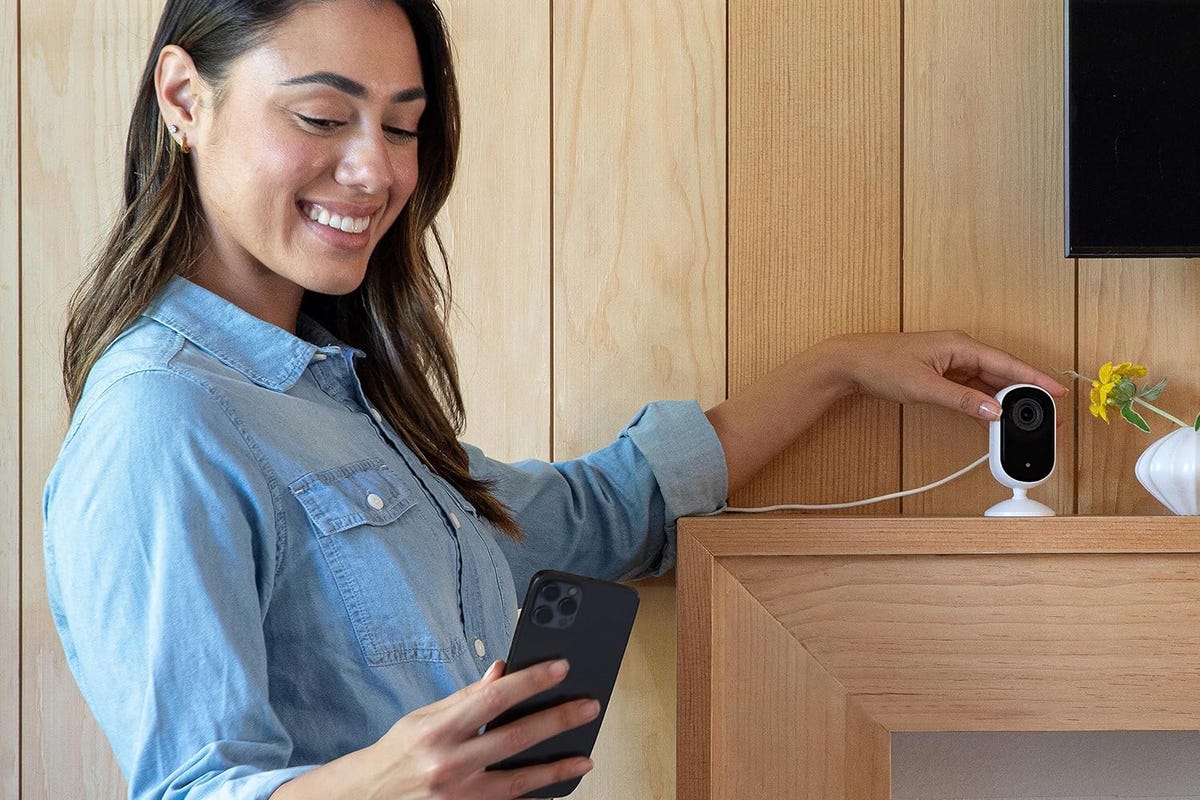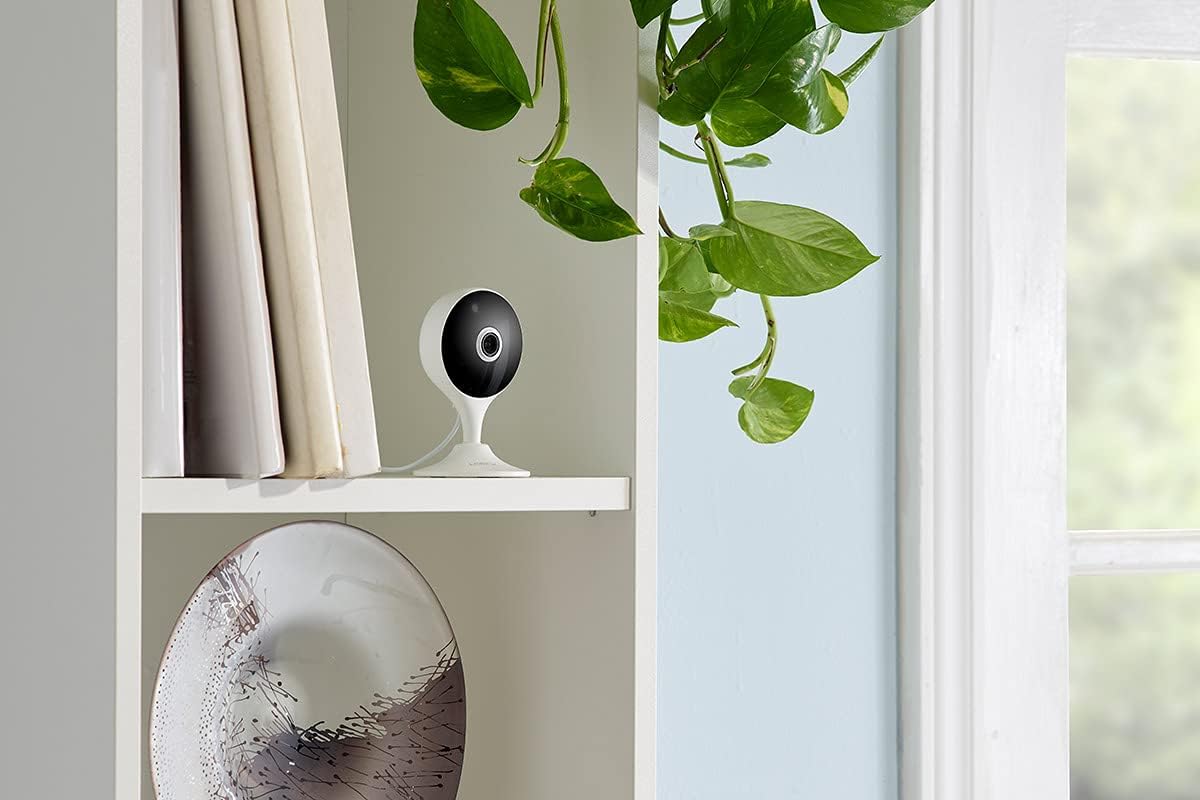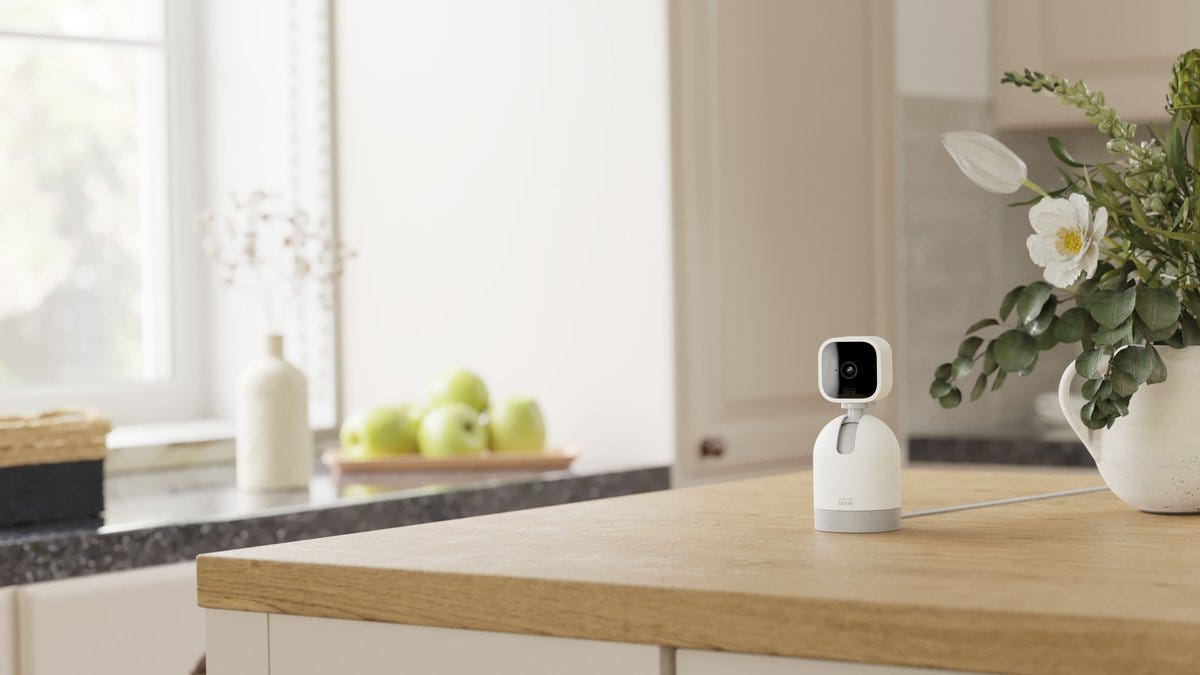 Why You Can Trust CNET
Why You Can Trust CNET
Our expert, award-winning staff selects the products we cover and rigorously researches and tests our top picks. If you buy through our links, we may get a commission. How we test home security cameras and video doorbells
When smart devices keep watch on your valuable home spaces, it's smart of you to ask about their hacking and security vulnerabilities. Security cameras have run into disasters in the past, like an ADT employee who spied through customer cams for years before ADT resolved the issue, or Wyze's video glitch that let strangers see other people's home videos.
Some Reddit users have discovered this the hard way: One person with a cheap home security camera discovered that their data was being routed to multiple IPs overseas before taking control of their network again.
Fortunately, home security hacking is very rare and usually caused by someone you already know. But to protect against remote connections or snooping from untrustworthy people who could gain access, there are several tips you need to follow.

The end-gen Arlo Essential Indoor cam is an all-around nanny cam winner.
Arlo/Amazon1. Don't buy knockoff camera models or used cameras
It doesn't matter how good the deals are, quality matters more when choosing a security camera. Avoid buying from unknown brands, purchasing products that are clearly knockoffs of the real deal or purchasing from electronic companies on the US' official no-no list, which includes Huawei, ZTE and others.
A similar and frustratingly common problem is buying used cameras on eBay, Craigslist or other listings. You don't know what software is still on that camera, no matter who promises it's wiped. This is one of the only ways an enterprising cybercriminal can gain access to random homes, so stay away from used models.
2. Look for companies that practice end-to-end encryption
End-to-end encryption simply means that data from your device is encrypted before it goes anywhere. If that data gets intercepted via Wi-Fi hacking, or if it's stolen online, thieves won't be able to make sense of it, see video in it or use it for anything. That also makes it harder to identify and take control of any devices like cameras. Additionally, it means companies keep the data encrypted on their servers until you or another authorized entity access it, so random employees can't snoop through it.
Companies like Ring and Arlo offer the option to enable full end-to-end encryption, which is always a good idea. Companies like Arlo and Nest have partial end-to-end encryption but decrypt the data at certain points for analysis and other purposes, which is good but not quite as robust.

Some cams keep video storage entirely offline to increase security, but they're still connected to the internet.
Lorex/Amazon3. Search for brands that have good data security track records
At CNET, we work to keep you updated on when companies have data breaches, change security policies (for better or worse) or run into unexpected security vulnerabilities in their devices. But it's also a good idea to check on any security brands yourself before you buy from them, to see if there has been any recent vulnerability found or data breach by employees, etc. If a company has repeated or very recent security issues, you should probably find a different option. Note that some brands like Lorex keep video data off the cloud entirely and only analyze with onboard algorithms to help cut down video tampering.
4. Practice good password management for Wi-Fi and apps
If a cybercriminal can gain access to a weak home Wi-Fi system, they can often find and try to use many connected devices, including security cameras. Strong router security is the first line of defense against any of these problems. Choose strong passwords for your Wi-Fi and your camera app, enable Wi-Fi encryption and turn on any firewalls that you can live with. Consider enabling a VPN and creating a guest network for further protection.
Finally, when you go through major life changes like a big move or a breakup, it's a really good idea to change your passwords, too.

Basic security like strong password protection is also great for your cameras.
Blink5. Always update your camera and hub with the latest patches
Turn on automatic updates if available and check your phone or tablet to make sure updates always go through to your security camera app. Regularly log into your camera app so it can search for updates if necessary. These updates don't just fix bugs or add features, they also patch security vulnerabilities and improve overall security.
6. Enable 2FA (two-factor authentication) when possible
If your security camera uses two-factor authentication for logins, enable it. Logins then require you authenticate from another channel, like a text, email or facial recognition. That way a stranger or someone remote can't log into the camera app as easily.

Nest's indoor camera relies on cloud storage, but the company has a very good security track record.
Chris Monroe/CNETJust how risky is getting a home security camera?
It's not risky at all. Encryption practices and security measures are better than ever before, and no random cybercriminals really want to hack into security cameras. It's a waste of time compared to other pursuits. You're far more at risk of a data breach when the camera company itself is attacked, which still sometimes happens -- like when hackers stole the addresses of some ADT customers in summer 2024. However, many cameras offer local storage and other measures to keep as much info offline as possible, and indoor cams often come with lens covers for added protection. Our guide to no-subscription cameras has more info.
What kinds of people even try to hack a security camera?
Not many. It's usually either an angry ex or family member that already has access to the security camera login info, or a pervy monitoring center employee who eventually gets caught (and new encryption practices now work to prevent the latter). Sometimes, a neighborhood kid will exploit horrible wireless security management to mess around, too. But cybercriminals aren't interested in spying through your cams, and burglars just hide cameras of their own.
Are there any signs that my security cams have been hacked?
If your camera has an LED indicator light, you can look for the indicator turning on at odd times. Or you can search your app for unexpected captured videos if you use video storage. When other people get access to security cameras, they also like to mess around with the two-way audio to scare or confuse owners.
For an even deeper dive into home security cameras, take a look atthe spots you never want to install a cam, the right way to install cameras and the best overall wireless cameras.
FAQs
Should I be worried about getting a home security camera?
No, you shouldn't be worried about getting a home security camera. Cam hacking isn't especially prevalent, and most cam hackers aren't international cybercriminals who want to spy on you at home. Security cams are a net positive as part of a robust home security system.
Who is likely to hack my camera?
On the off chance that your camera is hacked, it's likely that the culprit is someone close to you -- a friend, a family member or someone in the neighborhood. It's not likely that a random cybercriminal is hacking your home security camera.